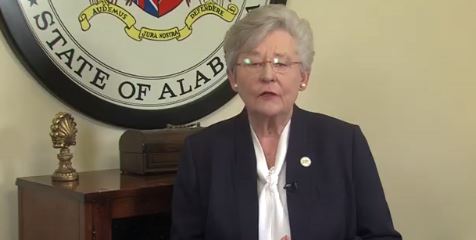MONTGOMERY, Ala. – Gov. Kay Ivey on Monday awarded $48 million of the Governor’s Emergency Education Relief Fund (GEERF) to the Alabama State Department of Education (ALSDE) in response to challenges related to COVID-19. This allocation will enable schools to enact policies established in the ALSDE’s Roadmap to Reopening Schools.
As schools across Alabama are navigating increased challenges related to COVID-19, this initial investment will assist by providing budget stability, enable distance learning for any student who seeks it, and get additional resources to students most in need.
The allocation will be used as follows:
- $10 million to equip all school buses with Wi-Fi capabilities to increase internet connectivity and help bridge the digital divide
- $4 million to improve remote learning opportunities by providing digital textbook and library resources for all students
- $26 million to provide additional academic support to bridge learning and achievement gaps
- $9 million to support intensive before and after school tutoring resources for learning and remediation in schools
Additionally, Alabama institutions of higher education will be able to submit requests for a combined reimbursement of up to $50 million of the federal Coronavirus Aid, Relief, and Economic Security Act (CARES Act). Alabama received approximately $1.9 billion of CARES Act funding to respond to and mitigate the coronavirus pandemic. Alabama Act 2020-199 designated up to $118.3 million of the Coronavirus Relief Fund for any lawful purpose as provided by the United States Congress, the United States Treasury Department, or any other federal entity of competent jurisdiction.
“I am pleased to invest in our state’s greatest asset – our students,” Ivey said. “As we respond and adapt to COVID-19, we must ensure that our local school districts and institutions of higher education receive necessary support and provide our students full access to their educational opportunities. Closing school during the pandemic disproportionately impacts students who are already struggling, and it is our obligation to provide as much stability and access possible in these uncertain times.”




















